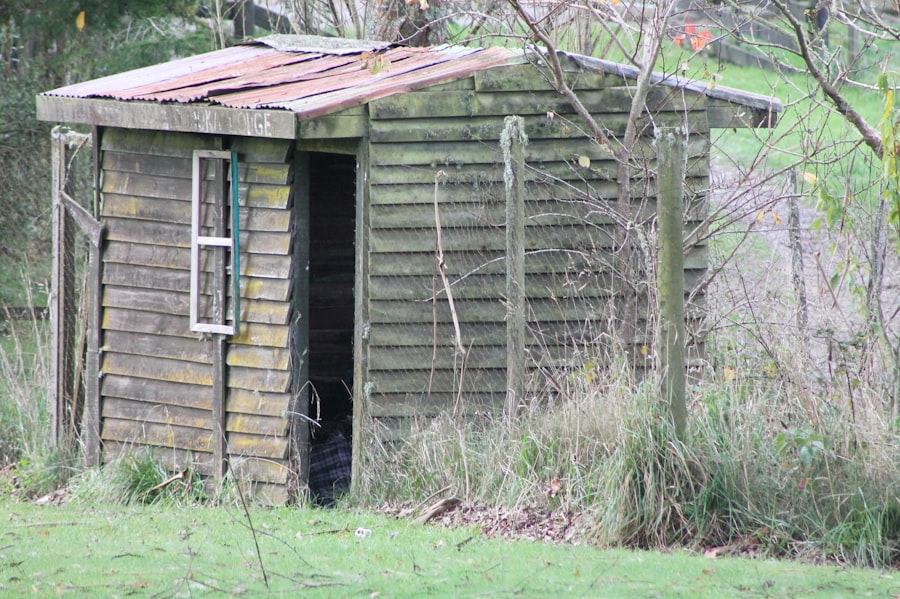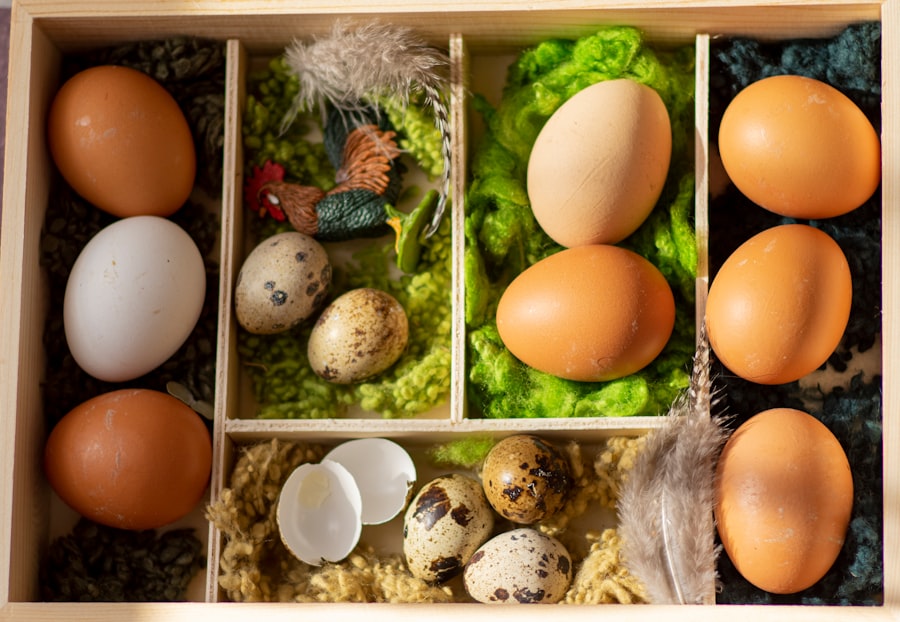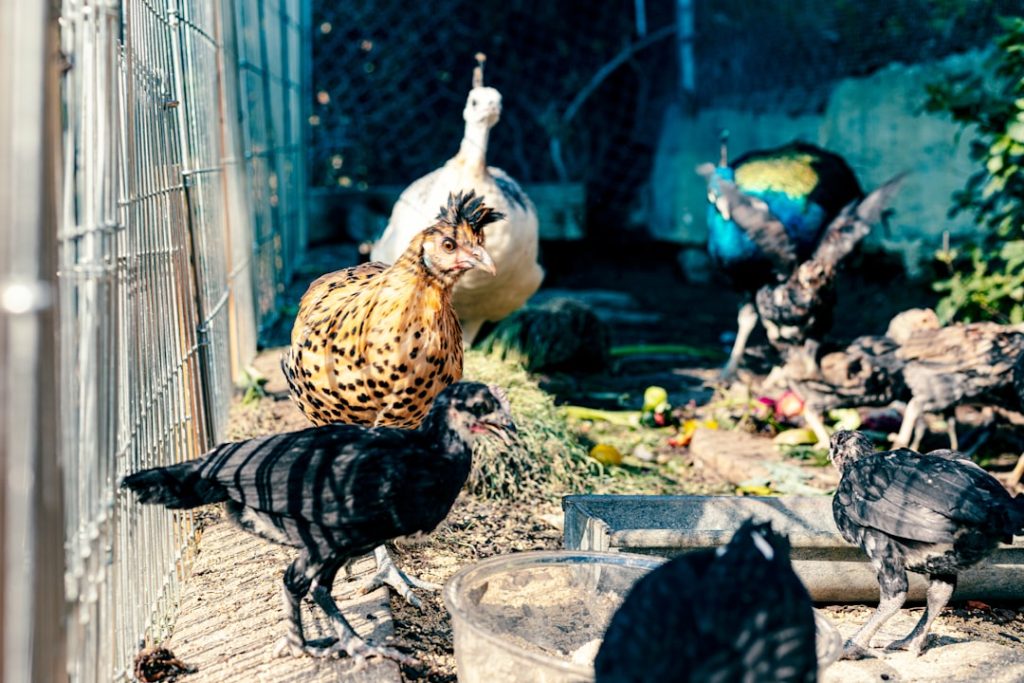Chickens are highly social creatures that flourish in flock settings. They establish a hierarchical structure known as the pecking order, which determines dominant and subordinate roles within the group. Comprehending this social dynamic is essential for maintaining harmony among the chickens.
These birds possess innate behaviors such as foraging for food, engaging in dust baths, and seeking elevated perches for roosting. Facilitating these natural activities is crucial for ensuring the chickens’ physical and psychological well-being. Communication among chickens involves a diverse range of vocalizations and body language cues.
They employ various sounds, including clucks, squawks, and even purr-like noises, to convey emotions and needs. Attentive observation of these signals can help caretakers identify potential issues within the flock, such as stress, illness, or conflicts. Chickens are also recognized for their intelligence and inquisitive nature, benefiting from cognitive stimulation and enrichment activities.
Acknowledging their mental capabilities allows for the creation of an engaging environment that promotes overall welfare and contentment.
Table of Contents
- 1 Creating a secure coop and run
- 2 Implementing effective deterrents
- 3 Establishing a routine for feeding and watering
- 4 Keeping the house and surrounding areas clean and free of food scraps
- 5 Providing entertainment and enrichment for the chickens
- 6 Seeking professional help if necessary
- 7 FAQs
- 7.1 What are some effective ways to keep chickens out of the house?
- 7.2 Why is it important to keep chickens out of the house?
- 7.3 Are there any health risks associated with allowing chickens inside the house?
- 7.4 What are some common mistakes people make when trying to keep chickens out of the house?
- 7.5 Can chickens be trained to stay out of the house?
Key Takeaways
- Chickens have natural behaviors such as scratching, dust bathing, and roosting that should be understood and accommodated in their living environment.
- A secure coop and run with proper fencing, predator-proofing, and adequate space are essential for the safety and well-being of chickens.
- Effective deterrents such as motion-activated lights, predator-proof latches, and electric fencing can help protect chickens from potential threats.
- Establishing a routine for feeding and watering chickens ensures they receive the necessary nutrients and hydration on a consistent basis.
- Regular cleaning of the coop and surrounding areas, as well as proper disposal of food scraps, helps prevent disease and pest infestations.
- Providing entertainment and enrichment such as perches, toys, and access to natural foraging opportunities can improve the welfare of chickens.
- Seeking professional help from a veterinarian or experienced poultry keeper is important if there are any concerns about the health or behavior of the chickens.
Creating a secure coop and run
Coop Design and Features
The coop should be well-ventilated, insulated, and predator-proof to ensure the chickens’ safety. It should also provide enough space for the chickens to roost, nest, and move around comfortably. A well-designed coop will help to reduce stress and promote healthy living conditions for your chickens.
Run Design and Features
The run should be enclosed with sturdy fencing to prevent predators from gaining access to the chickens. In addition to security, the run should also provide opportunities for natural behaviors such as foraging, dust bathing, and roosting. Adding perches, dust bathing areas, and enriching materials like straw or hay can help create a more stimulating environment for the chickens.
Providing a Healthy Environment
Providing access to fresh air, natural light, and outdoor space is essential for the chickens’ physical and mental well-being. A well-designed coop and run will help to promote healthy living conditions and reduce the risk of disease and stress. By creating a comfortable and stimulating environment, you can help to keep your chickens happy and healthy.
Implementing effective deterrents

Implementing effective deterrents is crucial for keeping predators away from your chickens. This can include installing motion-activated lights or sound devices, using predator-proof fencing, and securing the coop with locks or latches. Additionally, using natural deterrents such as predator urine or planting thorny bushes around the coop can help deter predators from approaching.
It’s also important to regularly inspect the coop and run for any potential entry points or weak spots that predators could exploit. By staying vigilant and proactive, you can minimize the risk of predator attacks and ensure the safety of your flock. Working with local wildlife experts or pest control professionals can also provide valuable insights and guidance on effective deterrent strategies.
Establishing a routine for feeding and watering
Establishing a routine for feeding and watering is essential for maintaining the health and well-being of your chickens. Chickens thrive on a balanced diet that includes a mix of grains, seeds, fruits, vegetables, and protein sources such as mealworms or insects. Providing access to fresh water at all times is also crucial for their hydration and overall health.
Feeding should be done at the same time each day to establish a routine and prevent overeating or food waste. It’s important to monitor their food intake and adjust the portions as needed to ensure they are getting the right amount of nutrients. Additionally, regularly cleaning and refilling their water containers is important for preventing contamination and ensuring they have access to clean water at all times.
Keeping the house and surrounding areas clean and free of food scraps
Keeping the house and surrounding areas clean and free of food scraps is essential for maintaining a healthy environment for your chickens. Regularly cleaning the coop, nesting boxes, and roosting areas helps prevent the buildup of bacteria, parasites, and odors that can negatively impact their health. Removing soiled bedding, droppings, and leftover food scraps can also help reduce the risk of disease transmission within the flock.
In addition to cleaning, it’s important to properly dispose of any food scraps or kitchen waste to prevent attracting pests or rodents to the coop area. Using secure containers or compost bins can help contain food waste and prevent it from becoming a nuisance or health hazard for the chickens. By maintaining a clean and tidy environment, you can create a more hygienic and comfortable living space for your flock.
Providing entertainment and enrichment for the chickens

Environmental Enrichment
This can be achieved by providing toys such as hanging mirrors or treat dispensers, creating obstacle courses or perches for them to explore, or introducing new materials like straw bales or branches for them to peck at.
Outdoor Enrichment Opportunities
Allowing chickens access to outdoor areas where they can forage for insects, dust bathe, or explore natural elements like logs or rocks can provide valuable enrichment opportunities.
Rotating the Environment
Rotating their environment or introducing new elements periodically can also help keep them engaged and curious. By providing a stimulating environment, you can help promote their overall well-being and prevent negative behaviors such as feather pecking or aggression.
Seeking professional help if necessary
Seeking professional help if necessary is important for addressing any health or behavioral issues that may arise within your flock. If you notice any signs of illness, injury, or abnormal behavior in your chickens, it’s important to consult with a veterinarian who specializes in poultry health. They can provide valuable insights and guidance on diagnosing and treating any health issues that may be affecting your flock.
In addition to veterinary care, seeking guidance from experienced poultry keepers or animal behaviorists can also provide valuable support for addressing behavioral issues within the flock. They can offer insights on managing aggression, introducing new flock members, or addressing stress-related behaviors. By seeking professional help when needed, you can ensure the health and well-being of your chickens and address any issues that may arise in a timely and effective manner.
If you’re looking for more information on keeping chickens, you might be interested in this article on renting a chicken coop. It can provide helpful tips on how to create a suitable living space for your chickens outside of your house.
FAQs
What are some effective ways to keep chickens out of the house?
Some effective ways to keep chickens out of the house include installing barriers such as fences or chicken wire, using deterrents like motion-activated sprinklers or noise devices, and training the chickens to stay in designated areas.
Why is it important to keep chickens out of the house?
Keeping chickens out of the house is important for hygiene and cleanliness, as chickens can carry dirt, bacteria, and parasites on their feathers and feet. Additionally, chickens may cause damage to furniture and belongings if allowed inside the house.
Are there any health risks associated with allowing chickens inside the house?
Yes, allowing chickens inside the house can pose health risks, as they can carry bacteria such as salmonella and campylobacter. These bacteria can be transmitted to humans through contact with chicken droppings, feathers, or surfaces that chickens have come into contact with.
What are some common mistakes people make when trying to keep chickens out of the house?
Some common mistakes people make when trying to keep chickens out of the house include not providing adequate outdoor space and enrichment for the chickens, using ineffective barriers or deterrents, and not being consistent with training and reinforcement of boundaries.
Can chickens be trained to stay out of the house?
Yes, chickens can be trained to stay out of the house through consistent reinforcement of boundaries, using positive reinforcement techniques such as treats and praise, and providing alternative designated areas for the chickens to roam and explore.
Meet Walter, the feathered-friend fanatic of Florida! Nestled in the sunshine state, Walter struts through life with his feathered companions, clucking his way to happiness. With a coop that’s fancier than a five-star hotel, he’s the Don Juan of the chicken world. When he’s not teaching his hens to do the cha-cha, you’ll find him in a heated debate with his prized rooster, Sir Clucks-a-Lot. Walter’s poultry passion is no yolk; he’s the sunny-side-up guy you never knew you needed in your flock of friends!







